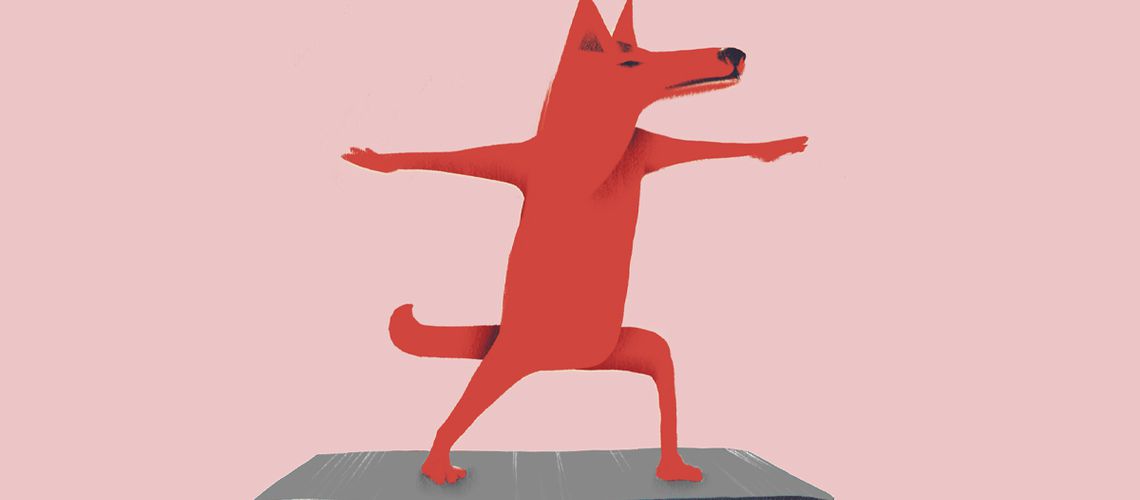

Stress Management Tips to Support Better Well-Being for Veterinarians
Stress levels continue to rise for veterinarians, according to a recent global survey sponsored by IDEXX and conducted by CM Research, highlighting the need to incorporate and implement stress management tips in practice. Of the more than 800 veterinary professionals surveyed globally, 20% of respondents consider themselves "very stressed" compared with only 8% pre-COVID, and 38% called themselves "stressed," up from 32% before the pandemic.
These statistics merely highlight a mental health problem that had been going on in the veterinary profession long before 2020 but only worsened amid the pandemic. As a result, veterinarians everywhere need greater support for their mental health. To effectively address veterinarian stress, it's first important to recognize the major contributing factors, including:
- Compassion fatigue, ethical conflict, moral distress, and a lack of training on how to deal with these issues
- Poor work-life balance, long hours, and social isolation
- High student-debt levels
- Bullying online and at the practice
- Lack of communication and mindfulness training
- Increased tendencies of maladaptive perfectionism, achievement orientation, and imposter syndrome
- Regular exposure to death
- Increased demand for services since 2020
So, what can you do if you're a veterinarian currently experiencing a high level of stress? Here are three stress management tips that can help.
Go from "AHHH!" to "Ahhh." Read how fellow veterinarians are finding focus in our latest guide.
1. Devote Time to Self-Care
If you're like most veterinary professionals, you are a big-hearted, chronic over-giver. As a result, you might be thinking one of four things when it comes to devoting time to self-care:
- That sounds selfish.
- I don't have time.
- I don't have the money.
- I can't possibly take care of myself when everything and everybody else needs my attention.
I used to think that way too, but after I crashed and burned in my late 30s, I realized that self-care is not selfish, but a necessary survival skill. Furthermore, the excuses we use to not practice adequate self-care are disempowering lies that most people have been conditioned to believe. You can hear it every time you ask veterinarians how they are doing. Most say, "Oh, I'm fine—busy, tired, but fine." In fact, in veterinary culture, we sell our virtue by telling people how busy and tired we are.
Self-care is all about taking your power back by caring for your most important asset—you. That is why self-care is the most important element when it comes to stress management tips and prioritizing well-being in the workplace.
2. Embrace Mindfulness
Mindfulness is a basic human ability to be completely present, being aware of where you are and what you're doing, and not feeling overwhelmed or highly reactive. When you're mindful, you are more grounded in the now and not influenced by either regret for past actions or anxiety about future ones.
There are many benefits to mindfulness, including:
- Increased resilience
- Reduced stress
- Better management of chronic pain
- Increased insight, awareness, and cognitive flexibility
- Greater compassion and empathy
Mindfulness also helps you to become aware of potentially damaging thoughts that cycle over and over again in your mind, all of which make you stressed and unhappy.
When I started practicing mindfulness, I realized my worries played in a continuous loop in my mind, influencing my beliefs about the world and creating a negative narrative that ran my life. My thoughts sounded something like this: "There's not enough money; I have to do this all myself; I can't trust others; the world isn't safe; I am a victim of others; I am not free."
Embracing mindfulness is a way to counter this cycle. You just need to learn how to access it. Some ways to cultivate mindfulness include:
- Breathwork, even a few minutes per day.
- Noting your thoughts and feelings as they pass by but not getting involved with them
- Meditation, whether guided, unguided, transcendental, chanting, walking, or part of an exercise routine.

3. Adopt the Four Rs
Created by nurses, the four Rs strategy has been used extensively in human medicine to reduce stress in situations that can cause moral distress. The next time you are confronted with a stressful situation, try to apply the four Rs:
- Recognize. Be aware of the complexities related to the patient, the client, and the veterinary care team, including what each party wants to happen and emotions that may affect their perspectives. Recognize the situation for what it is.
- Release. Consider what you can change and what you can't. Let go of the need to control the outcome, and instead, control the only thing you really can—yourself.
- Reconsider. Once you've let go, it's time to build a new mindset about the situation. You may need to reframe an issue to view it in a new way.
- Restart. You may find you're asking new questions or have new ideas about how the situation can be moved forward in a positive way. Ask yourself:
- How important is it to you to change the situation?
- How important would a change be to your patients, clients, and the practice?
- How confident are you in your ability to cause change?
- How determined are you to make this change?
Used daily, these practices will reduce stress and burnout, help you enjoy your job and your life again, increase productivity, and ultimately better serve the pets and people we love so much.







